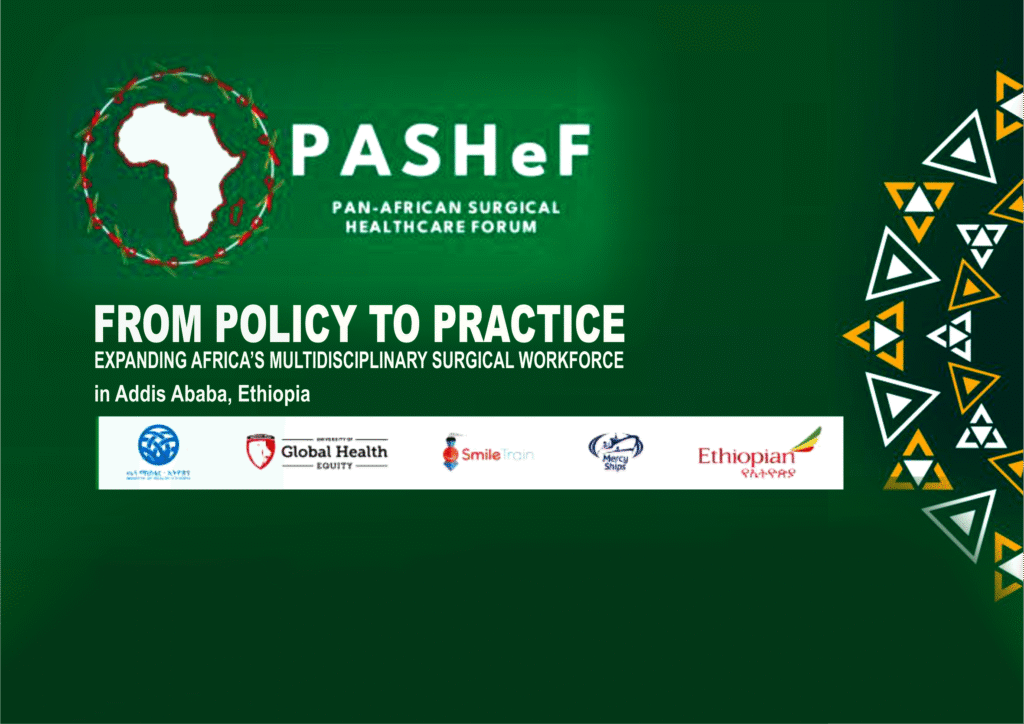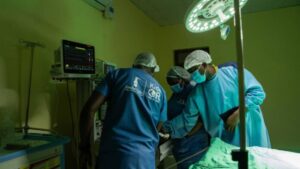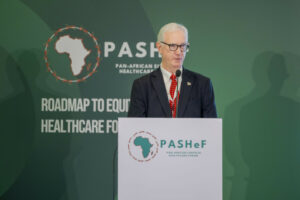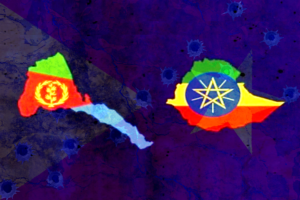PASHeF 2025: African Leaders Push for Stronger Surgical Systems as Key to Universal Health Coverage

In Addis Ababa, Ethiopia, African health leaders convening at the Pan-African Surgical Healthcare Forum (PASHeF 2025) are intensifying efforts to place surgical care at the heart of Universal Health Coverage (UHC), underscoring both the human urgency and the political momentum behind strengthening surgical systems across the continent.
Now in its third year, PASHeF has become a continental space where governments, development partners and experts move beyond dialogue to map practical solutions that can improve surgical, obstetric and anesthesia services. Lifesaving interventions that millions of African families still struggle to access. Forty-two Ministries of Health and Finance joined representatives from WHO AFRO, Africa CDC, the AU and civil society under the theme: “From Policy to Practice – Expanding Africa’s Multidisciplinary Surgical Workforce: What Works for Africa?”
In many African households, surgery is not a luxury but a determinant of survival, dignity and long-term livelihood. The Lancet Commission on Global Surgery estimates that 5 billion people worldwide lack access to safe and timely care, including 1.7 billion children living with treatable conditions such as cleft lip, club foot, hernias, or birth defects. Delayed or unavailable surgical care often leads to preventable deaths, lifelong disability and deepening poverty.


This human dimension was central to discussions at PASHeF 2025. Sierra Leone’s newly launched National Surgical, Obstetric and Anaesthesia Plan (NSOAP) 2026-2030, presented by Deputy Chief Medical Officer Dr. Mustapha Kabba, served as a prominent example of how political commitment can be translated into a national roadmap. Developed with support from partners including Mercy Ships, the plan outlines costed strategies to expand surgical and anesthesia care across the country. Its implementation could reshape daily life for thousands of Sierra Leonean families for whom emergency obstetric care, trauma surgery, or simple corrective procedures have long been out of reach.
Dr. Walt Johnson, Director of Strategic Partnerships at Mercy Ships, reinforced the importance of African-driven solutions. “The launch of Sierra Leone’s NSOAP demonstrates how political commitment and partnership can translate into real improvements in access to surgical care at the national level,” he said. “PASHeF provides exactly the kind of platform needed to turn these ambitions into dedicated action on a continental level.”

The forum highlighted the business and economic case as well. Untreated surgical conditions impose heavy costs on national productivity, limiting workforce participation and stalling economic growth. As more countries, including Ethiopia, Ghana, Nigeria, Rwanda, Madagascar, and Tanzania advance their own NSOAPs, governments increasingly view surgical system as a strong developmental investment, not simply a health expenditure.
Improved access to surgery also strengthens community existence. In many African societies, childbirth is both a social milestone and a family event; ensuring safe obstetric care preserves not only the lives of mothers and infants but also the continuity of families and cultural traditions. Corrective surgery for children with congenital anomalies reduces stigma and supports their full participation in community and school life.

PASHeF 2025 marked a turning point politically. All governments in attendance unanimously adopted two resolutions and agreed to deepen collaboration with Africa CDC, which can elevate PASHeF roadmaps to the African Union agenda. This gives the forum’s recommendations greater continental weight and increases the likelihood of sustained implementation.
Ethiopia’s Minister of Health, Dr. Mekdes Daba, emphasized that UHC will remain incomplete until surgical care becomes a routine and affordable part of every health system. She called for “bold, government-led actions and innovative strategies” to transform surgical access across the continent.
With momentum growing and countries aligning behind shared goals, PASHeF is emerging as a cornerstone of Africa’s pursuit of Universal Health Coverage. Its focus on surgical care reflects a broader truth: accessible surgery is not only a medical necessity but a foundation for stable families, productive societies, and resilient economies.






